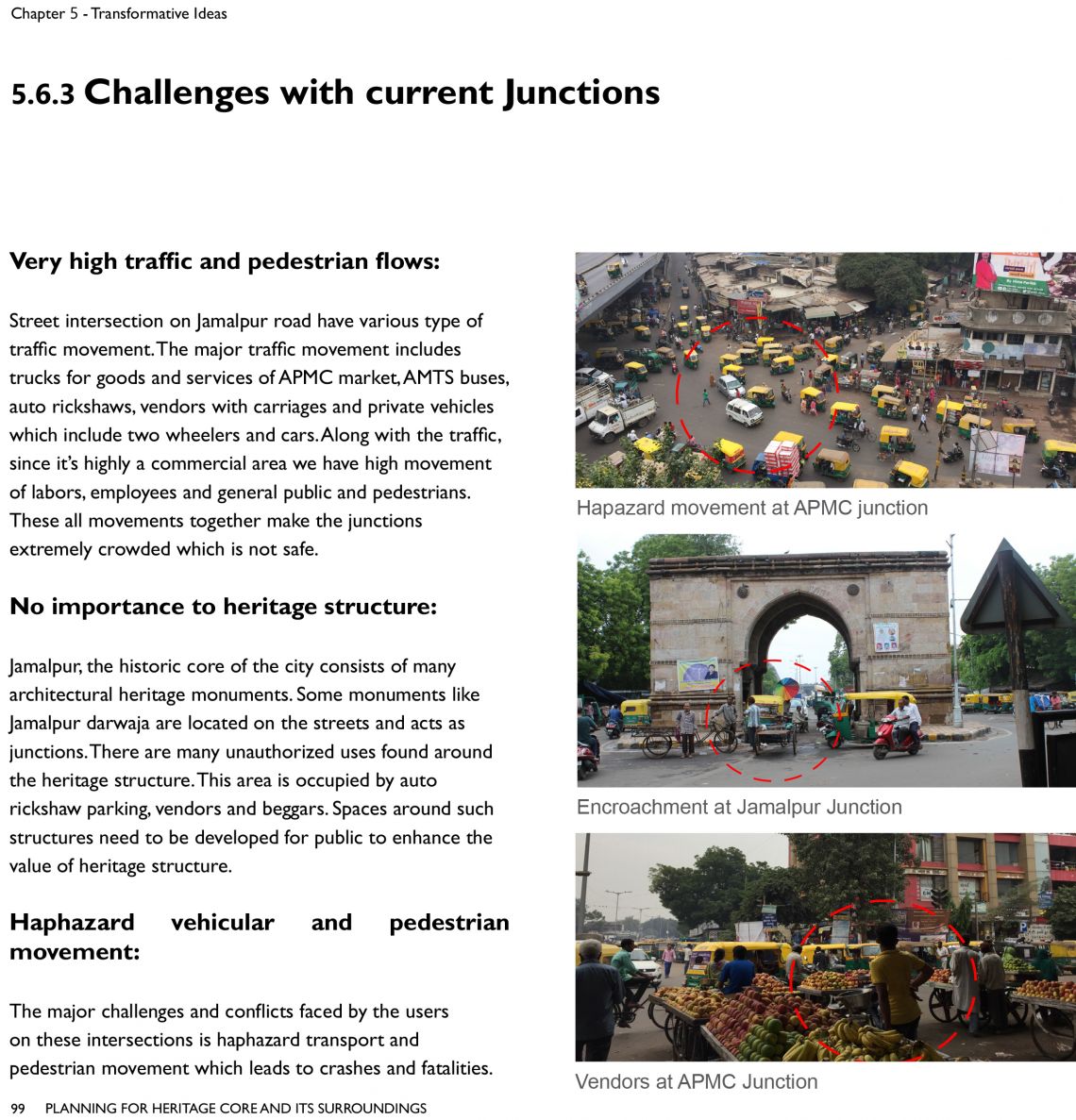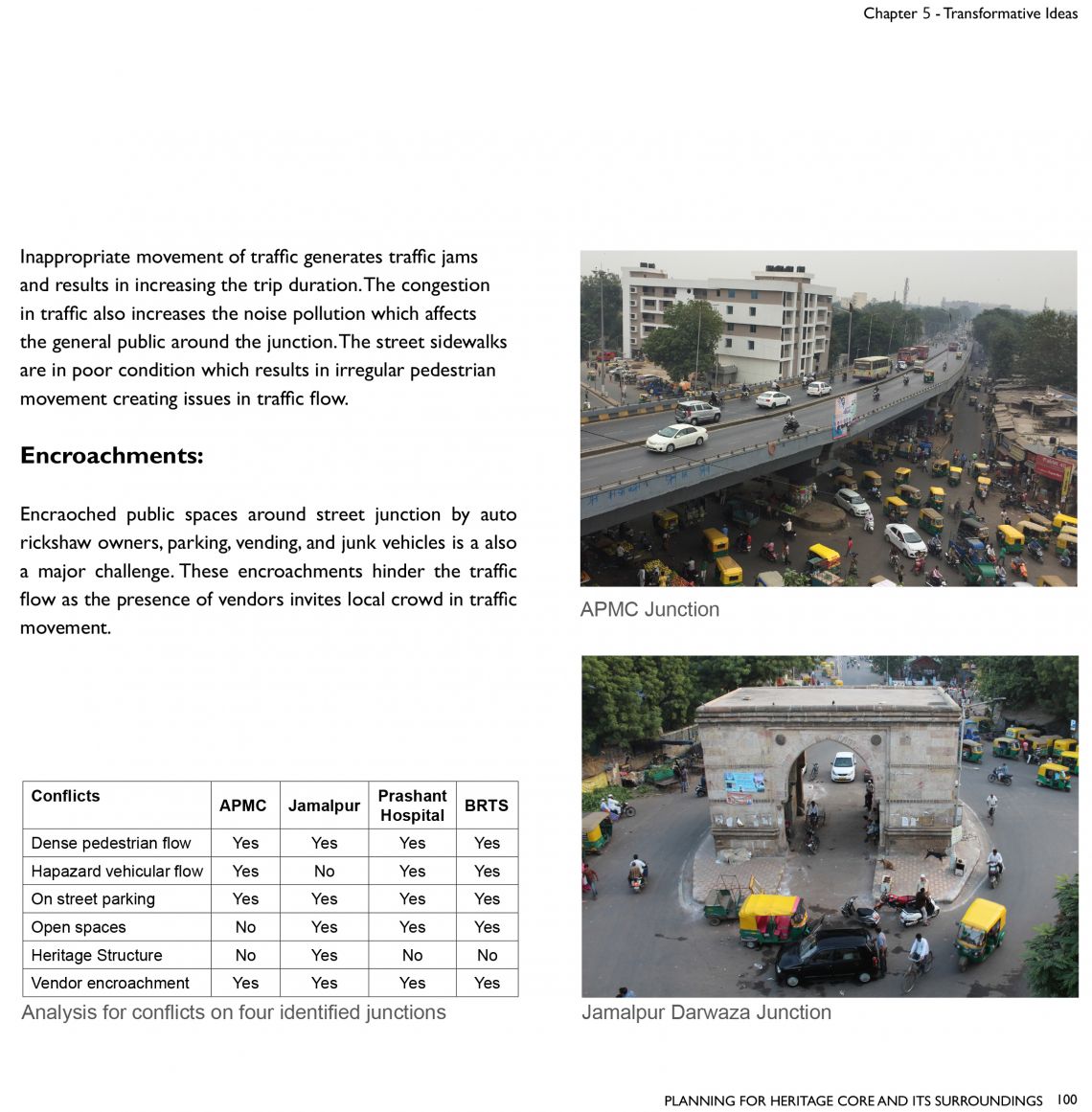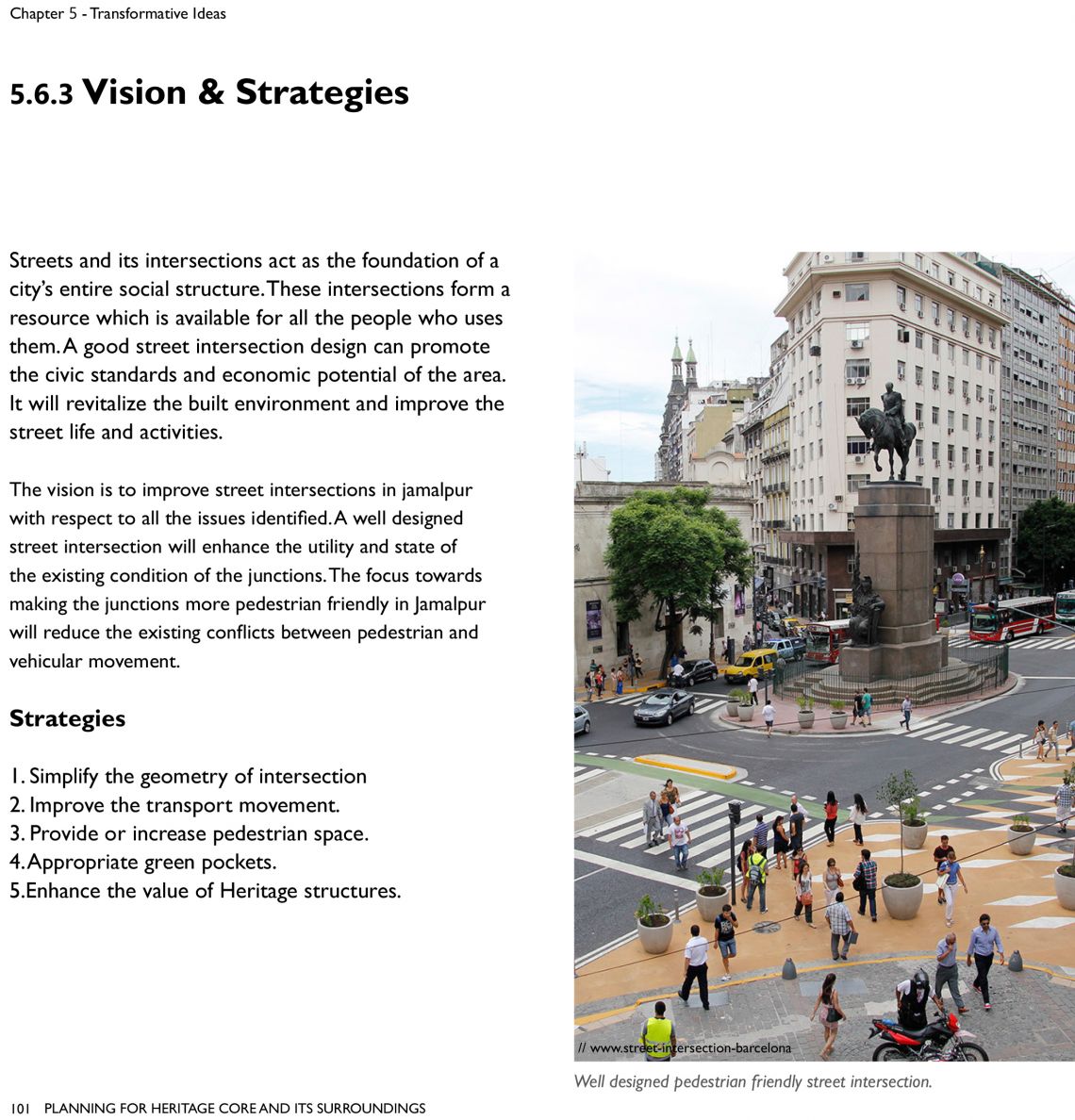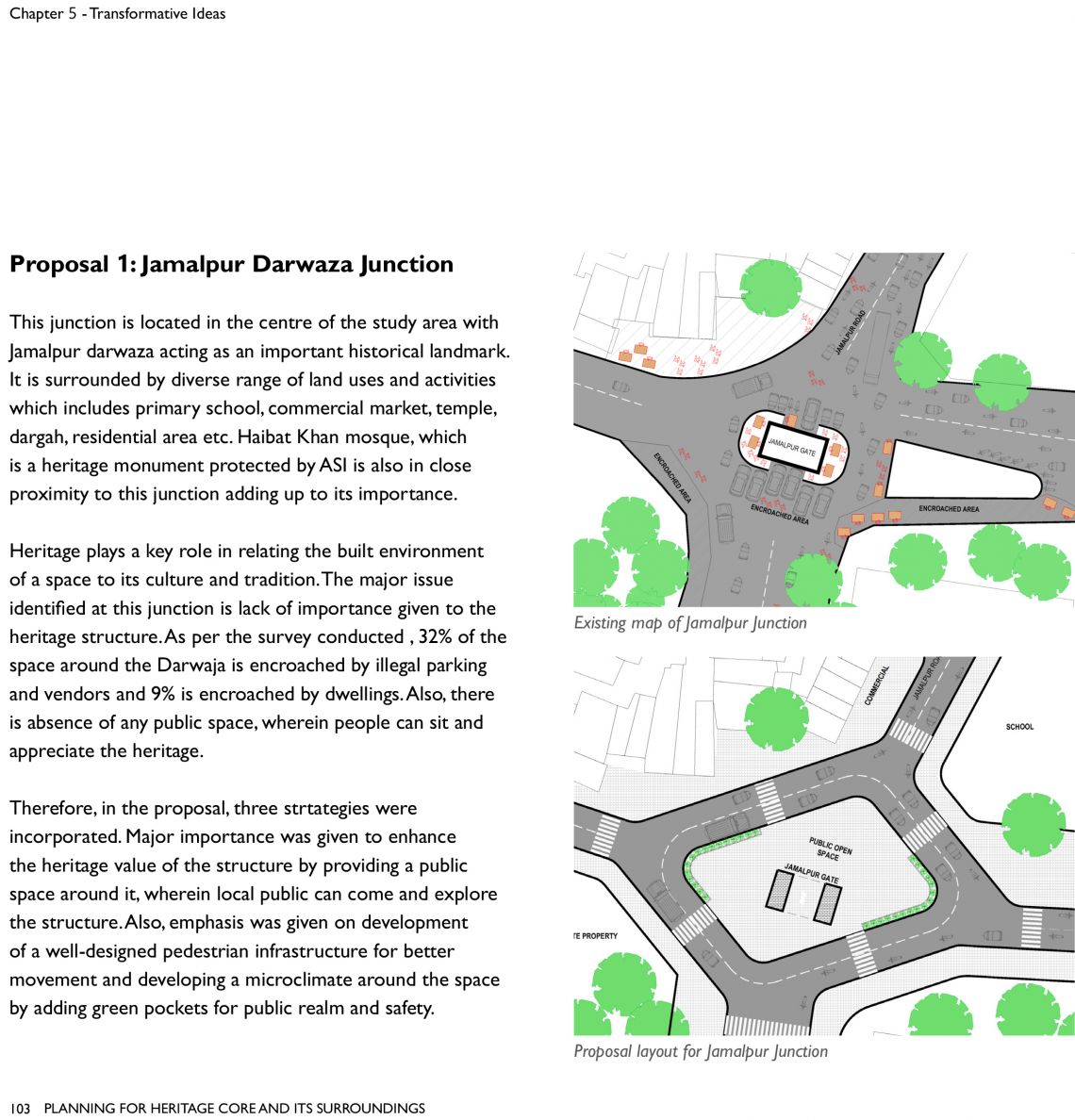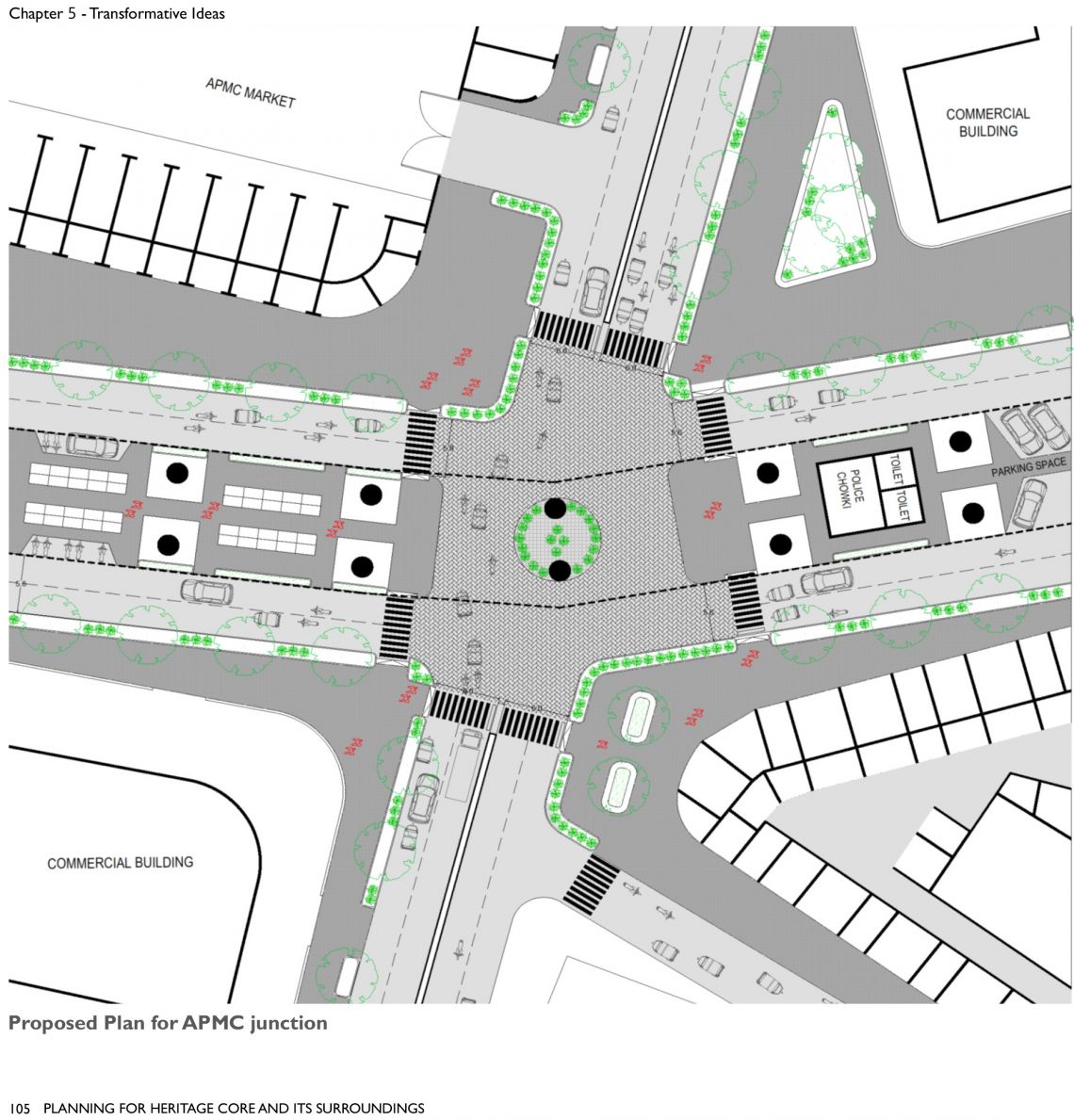Your browser is out-of-date!
For a richer surfing experience on our website, please update your browser. Update my browser now!
For a richer surfing experience on our website, please update your browser. Update my browser now!
Historic cores often act as the symbols of the city’s image
despite having gone through chaotic and uncontrolled
development. These spaces have a sense of time and place,
that they represent through the built elements and the
human activities in them. These are the places where the
‘culture’ of the city has its greatest expression. Historic
cities represent a way of life and living which is an intangible
characteristic of urban heritage.
Why design street junctions?
The impact of a well-designed street intersection reflects
the built environment of the space and embraces public
realm of the area. Whether driving, shopping, walking or
lingering, intersections are a point of activity and decision,
and thus are critical parts of the city streetscape and
transportation network..Since these intersections act as
major nodes of conflicts and accidents, hence management
of traffic and careful design proposals to solve these issues
is a major role.
The main objective for redevelopment and designing of
these street intersections is to provide an environment
where the complex traffic movement feels risk free,
simple and natural. A well designed and developed street
intersection will play a key role in safe commutation, clarity
and proper organization of the street network.
What is a good street intersection?
Streets and its intersections must reflect and meet the
demands and needs of people using them. A well designed
street intersection uses the space available to bring different
type of its users together and revitalize a city, simultaneously
taking care of the traffic and pedestrian flow making it more
instinctive, smooth and probable for all the people passing
through it.

